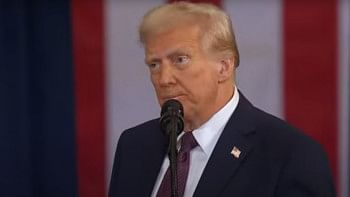Everything that’s wrong with Bangladesh Railway

When was the last time we heard of any positive news about Bangladesh Railway (BR)? I don't remember coming across any in recent years. But negative news? There were plenty of them in the last couple of months alone—from counting losses every year to not being able to complete the myriad projects undertaken to improve its services, it seems that the agency could not do a single thing right. If we only go through some of the reports published by The Daily Star in the past few months, we will get an idea about the extent of its incompetence.
According to a report published on May 7, 2022, BR will likely miss the completion deadlines for 14 out of 20 projects scheduled to end by this fiscal year. Of these 14 projects, deadlines for 13 have seen at least one revision already, and the authorities are seeking another extension from one to three years for each. Among the other six projects, one has been cancelled halfway, while the deadlines for the remaining five, due to be complete by June this year, have also been extended several times—meaning that there was not a single project among these 20 which could meet its first deadline.
Among the 40 projects currently under implementation by the BR, with funding from the government, Asian Development Bank, India, and China, 26 have got new deadlines. Usually, after each revision and deadline extension, project costs go up significantly, as prices of raw materials increase over time, new components are added to the project, and sometimes the original designs of the projects are also changed.
Still, the BR has been taking on these massive projects without increasing the efficiency of its officials and without recruiting the skilled manpower required for such huge undertakings. The BR authorities have attributed the slow progress of the projects to delays in land acquisition, unavailability of foreign loans in time, shortage of manpower and Covid-19 disruptions—but have they taken any measures to address the issues? Have they held anyone accountable for such slow progress of work? Do the railway authorities even care that it is public money that is being wasted in the process of frequent revisions?
If they do, what measures have they taken in all these years to complete the projects on time? Why do they still not have the capacity to design and plan a project with the much-needed expertise? Or is it because of corruption and irregularities of its officials that the projects can never meet their original deadlines?
While BR officials have identified their own reasons for such poor performance, transport experts have identified some vital issues such as poor planning, faulty feasibility studies and political influence to undertake premature projects as the main barriers to timely project completion. What happens when the plan for a project is done hastily without taking the much-needed expert opinion and the feasibility study is done without much care? Citing examples of some of the ongoing projects should be enough to understand this.
According to a report in this daily on January 29, 2022, the government undertook a project to procure 70 Metre Gauge (MG) locomotives in 2011 to mitigate the growing crisis of rail engines and to expand the services of Bangladesh Railway. While the Tk 1,946 crore project was supposed to be completed by 2017, the project authorities could not even complete the bidding process by that time. As the deadline of the project was extended twice and it went through a major revision in 2018, the project cost jumped to Tk 2,659.33 crore. After the revision, the deadline was extended again to June 2024.
The BR then signed an agreement with the South Korean Hyundai Rotem Company which was supposed to arrange the required funds. But according to our report, the company wanted to pull out from the project as the government asked it to manage soft loans instead of non-concessional loans, as agreed by both sides earlier.
Many of the foreign-funded projects, like the one mentioned above, faced uncertainties, as the companies that were supposed to arrange project funds did not want to fund them anymore due to changes in the agreement. In the case of the Joydebpur-Ishwardi double-line project, the Chinese government clearly mentioned last year that they did not want to fund the project because there was a "lack of in-depth preliminary work and insufficient feasibility study".
After facing these problems with the foreign-funded projects, have the railway authorities changed anything to improve their planning and overall execution?
It is unfortunate that despite being one of the five ministries that received the highest development fund allocations in the past decade, the railways ministry is among the lowest performers in terms of project implementation. According to a report by the Implementation Monitoring and Evaluation Division, it could not achieve even the average ADP implementation rate twice in the last six fiscal years.
Besides the failures in project implementation, the BR is also incurring huge losses year after year. Between FY 2008-09 and FY 2019-20, it had incurred Tk 13,492.70 crore in losses, according to BR documents. As per the data of the Bangladesh Railway Information Book-2020, the agency has not made any profit since FY 2008-09, despite the fact that the government has increased its funding both for operation and development.
Unless the government holds BR authorities accountable for their repeated failures in project implementation and check the various irregularities and mismanagement inside the organisation, we will no doubt hear of more such failures in the coming days, and the poor performance of Bangladesh Railway will continue to make citizens suffer.
Naznin Tithi is a member of the editorial team at The Daily Star.


 For all latest news, follow The Daily Star's Google News channel.
For all latest news, follow The Daily Star's Google News channel. 








Comments